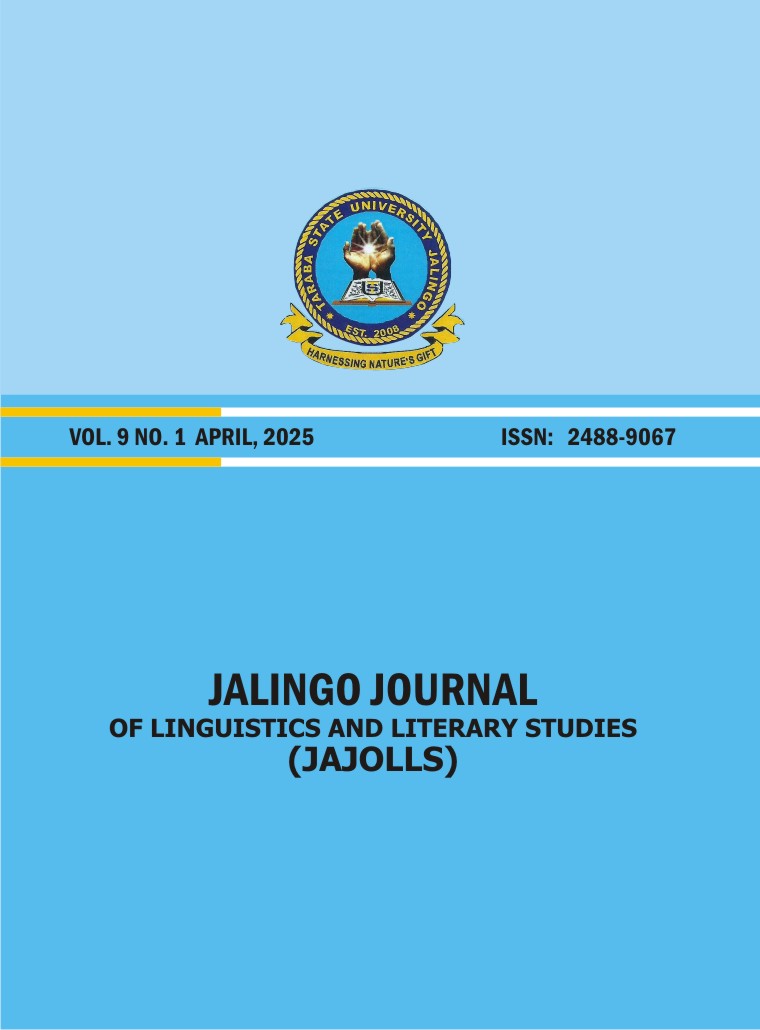Semantic Study of Death Euphemisms in Bura Language
Keywords:
Literature in English, objectives, senior secondary school, pedagogy, comparative studyAbstract
This study investigates semantic study of death euphemisms in Bura language, with the objectives of identifying, classifying and analysing death euphemistic words in Bura language. It analyses euphemisms semantically. Data was collected from eight Bura native speakers, four males and four females aged 40 and above in Hawul and Biu Local Government Area Councils of Borno State. The model adopted was Burridge (2012:66) on the classifications and functions of Euphemisms. The scope of the study is death euphemism in Bura language by justifying its data using the provocative and ludic euphemism among other classifications of Burridge (2012). However, this model has the case of overlapping in provocative and ludic. The provocative euphemism inspired and revealed (death euphemism); ludic euphemism to amuse, have fun, and entertain (death). The result of the study shows death as ―God called‖, ―returned home‖, the time has clocked‖, dust his/her feet‖, and ―heaven has fallen‖ (for a death of a leader). It shows death euphemisms as comforting and inspiring. These inspiring words gives comfort, courage, and motivation to the deceased family by letting go of the past and moving forward on the future. However, the findings of the study showed linguistic evidence of ―lexical, compound and sentential euphemisms in Bura death euphemisms. The study indicates Bura people resort to euphemisms in referring to death because death is the inevitable end of human life and a journey to the other side of the world.

